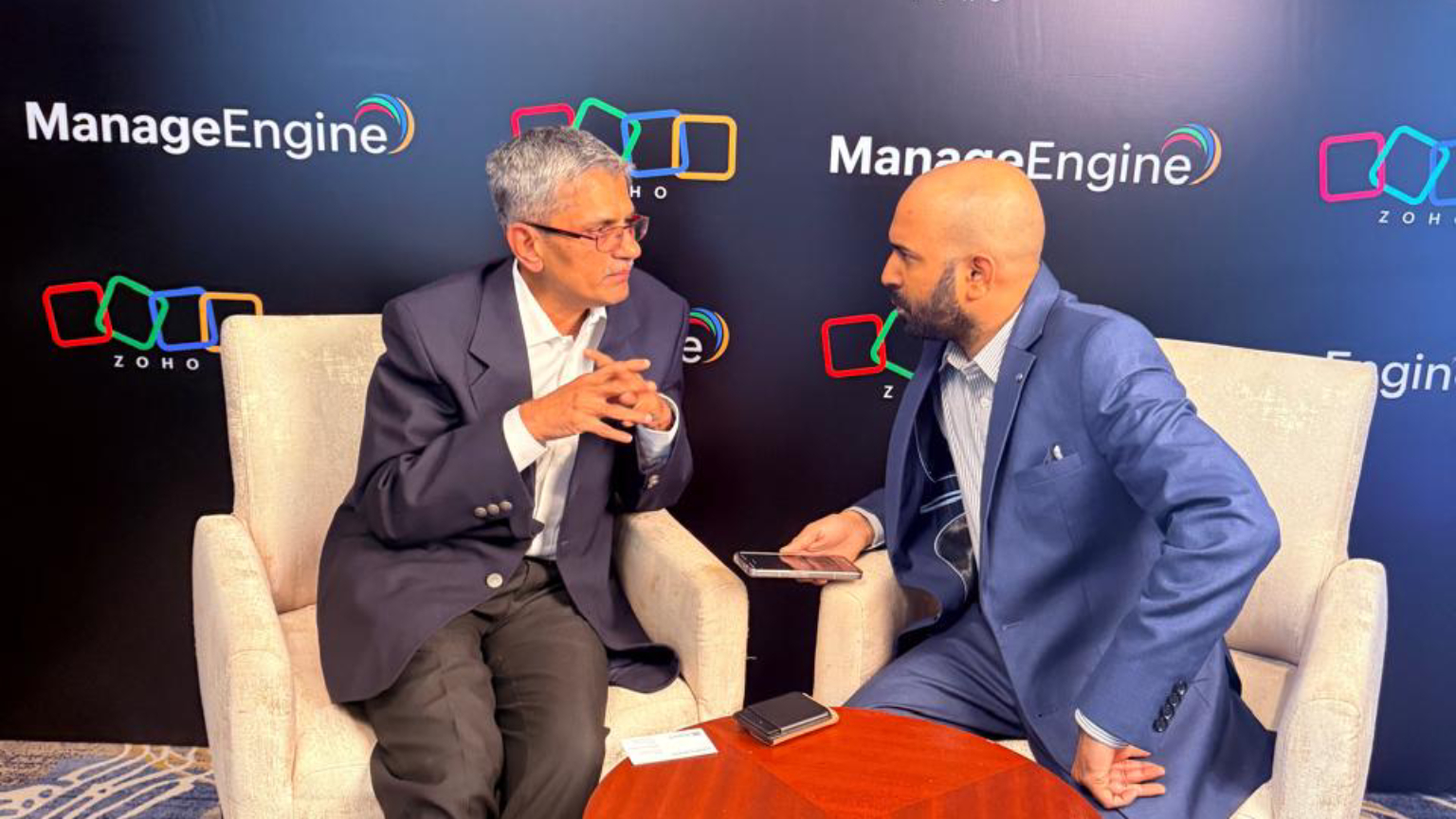Cover Story
SME Sector: The Powerhouse of Progress Backed by Agile Policies
An in-depth analysis of the SME ecosystem in the UAE. The article also attempts to give insights into the comprehensive revival efforts and agile policies put in place by the national government to uplift SMEs from pandemic distress and financial constraints.
Small and medium enterprises (SMEs) are observed as the backbone of all economies across the world. Not only do they have the remarkable potential to lead innovation, create jobs, fuel economic growth, and expand the tax base but also can play a crucial role in social cohesion. However, their existence and survival were facing questions since the COVID-19 pandemic hit. Many of them had to hibernate their operations for an uncertain period due to the disconnection of resources and supply-chain networks, owing to lockdowns in the South Asian countries and Europe.
The United Arab Emirates (UAE), has always been a frontrunner in showing its remarkable potential to host micro, small, and medium-sized enterprises (MSME) in its economy. The “UAE National Agenda,” presented in 2014 leading to the UAE Vision 2021 had categorically explained about creating a “Competitive Knowledge Economy” and signaled the country’s interest to reduce petrochemical dependence.
According to the Ministry of Economy, “SMEs represent 87 percent of the companies in the UAE and constitute 86 percent of the private sector’s workforce.” The sector, combining manufacturing, service, and trade, contributes over 52 percent to UAE’s non-oil GDP.
The Crisis Phase and Revival Efforts
The Central Bank of the UAE (CBUAE) has been actively surveying, studying the MSME sector, and figuring out possible options to help each category of enterprise to recover from challenges and financial constraints. Such surveys are regularly conducted in developed economies and the UAE is seemingly upfront in these actions that potentially enhance opportunities in the business sector.
Reports of CBUAE, chambers of commerce in emirates, various other agencies accelerated the government efforts to protect the SME sector in the extremely turbulent year of 2020. The UAE government’s agility in terms of creating and revising policies was visible enough. Business support, economic stimulus packages, service fee reductions, and utility price reduction combinedly worked to rescue the vulnerable SME sector and the country stood above its counterparts in the GCC.
UAE Ministry of Economy’s Cabinet Resolution 2020 to slash the fees of government services include licensing, renewal, and trademark, Ministry of Human Resources and Emiratization’s financial and administration protection from, and Prime Minister’s “agile, flexible, and speedy government” policy are the notable ones.
Banks for Small and Medium Businesses
The CBUAE survey concluded stating, “The surveys show challenges for MSMEs related to the absence of audited accounts, lack of collateral, in tandem with limited use of the services of the Credit Bureau and credit export insurance, which inhibit companies’ access to finance, thereby revealing areas where reforms are expected to have the biggest impact on improving the UAE MSMEs ecosystem.” The finding of the survey had played a crucial role in the UAE government’s mission to rescue SMEs and instructing banks to start flexible lending and insurance schemes for small and medium-sized businesses.
Acting upon the government’s interest, most of the financial institutions in the UAE created tools that will mitigate their risk connected with SME lending. Leading banks in the country including Emirates NBD, FAB, Mashreq, and RAK, offer business accounts, flexible remittance, digital solutions, financing, and personal services to SMEs.
Insights into SME-specific schemes, policies, and loans in the UAE banks:
Emirates NBD’s SME-Specific Package:
The bank convenes Multaqa that helps SME owners and entrepreneurs hear from industry experts and networks. It had announced a customized business banking package in 2020 for UAE-based SMEs and startups that features preferential pricing and privileges on transactions, working capital, trade finance, FX, and commercial loans, cementing the bank’s commitment to supporting the future growth and development of companies registered to do business with Expo 2020 Dubai.
Mashreq Business Banking
Mashreq offers business account solutions to SMEs include 25-30 percent discounts on trade transaction fees, free online remittance for currency transfers, unlimited checkbooks, business debit cards, flexible deposits, and tailored services for selected businesses besides sophisticated digital banking services.
RAKstarter SME Account
For budding entrepreneurs and startups, RAK bank provides zero-balance business accounts. RAKstarter accounts are available in AED, US Dollars, Euro, and Pound Sterling (GBP) currencies. The bank also claimed to provide business financing and attractive foreign exchange rates. Businesses own accounts at RAK bank can also avail low-cost mobile POS machine at preferential pricing.
FAB’s SME Growth Loans
After the announcement of Abu Dhabi government on expanding the SME Credit Guarantee scheme to prioritize and increase SME’s access to financing in the Emirate, First Abu Dhabi Bank (FAB) started to provide easy financing options to SMEs, improving their ability to withstand market fluctuations.
SME Growth Loan benefits from FAB
- Working capital facility for three months duration
- Term loans of up to 4 years duration
- Competitive interest rates
- Easy documentation
- Quick turnaround time
All qualified SMEs registered as LLC, FZEs, Sole Proprietorship, Partnerships & Branches of foreign companies, and operating in Abu Dhabi (onshore and offshore) in the categories of trading, manufacturing, and services are entitled to get the loan benefits.
Robust Technology Solutions for SMEs
SMEs need the support of cutting-edge technology in their business environment. The presence of sophisticated hardware and competent software not only make customer engagement highly productive but also save process cost. A well-thought-out plan should be made before procuring technology solutions of any kind.
The unprecedented pandemic hit led companies to start hybrid work, where a large percent of the workforce does their job remotely. Similarly, virtual interactions, even on business levels, have become a common practice. Hence, the IT solutions providers started tailoring their products based on the need of businesses. The integration of AI, cloud computing, cyber security, remote work solutions, and customer engagement tools is essential for SMEs to strive for success.
When it comes to procuring hardware solutions, SMEs should rely on robust and sturdy solutions to reduce down the situation and following business impact. The cost could be a major factor in the selection of hardware resources; however, reliability shouldn’t be questioned. Both open and closed sources have solid software programs to handle the entire enterprise activities. No matter what, adequate technical, installation, and training support should be demanded when it comes to choosing a vendor or system integrator.
Here’s a list of a few solutions that SMEs should go for or strengthen to become competent in the market:
- Enterprise
- Hybrid-Work
- Communication
- Supply and Logistics
- Workforce Management
- Cloud and Cyber Security
- Data Collection and Analytics
SMEs’ Reliance on Logistic Services
Nearly 70 percent of the UAE enterprises, mostly SMEs, trade their goods globally than locally. The ongoing digitization of logistic and supply-chain operations on par with the evolution of supporting technologies level the playing field for them. In addition, the geographical placement of the country added advantage for businesses to reach nearly half of the world population. The transformative growth and burgeoning investments in the e-commerce sector also seeding new hopes.
Here are some of the logistic options that businesses can choose from.
Road freight: It is one of the traditionally competitive logistic segments and it has a well-maintained infrastructure in the UAE. However, it required more efficiency and better technological support
Air freight: Most SMEs rely on air freight services, through which goods can travel almost two-thirds of the world population in eight hours from the UAE
Sea freight: For transporting heavy and large quantities of goods, sea freight becomes the only option.
Including several home-grown ones, there is a large number of logistics and shipping companies, DP World, Tristar Logistics, DSV, FedEx, DHL, Aramex, and Fetchr to name a few, operate in the UAE with tailored services for SMEs. Most of them offer road, air, and sea freight services.
To conclude, the COVID-19 pandemic had a lot of lessons for the SME ecosystem that includes enterprises, solutions providers, financial institutions, and logistic companies. All of these sectors consistently need to exchange values for common good. Existence in these sorts of turbulent times is possible only when effective integration and communication happen!
Cover Story
Inside Zoho’s UAE Data Centers!

Playing the Long Game in Cloud Infrastructure, Data Centers, Privacy, Cybersecurity, and Growth in the UAE
The Integrator had an interview with Shailesh Davey, Co-founder & CEO, Zoho, during the official launch of their newly opened data centers in the UAE.
Zoho is on an executing path; as they say, it is a disciplined, long-term regional strategy by deploying and right-sizing data centers in Saudi and the UAE, aligning with global trends in data sovereignty and privacy.
The UAE is a priority growth market fueled by regulatory and business-led digitization, supported by local teams and partners. Customers will see faster performance from local hosting, while flagship products Zoho CRM Plus and Zoho Books lead growth, with rapid regulatory feature alignments.
Zoho currently operates more than 18 data centers globally, with the UAE being the latest addition. From a regional perspective, does the Middle East require more data centers, or are the facilities in the UAE and Saudi Arabia sufficient to support Zoho’s growth plans?
We currently operate two data centers in Saudi Arabia, which primarily serve the Saudi market. In the UAE, we have now established two data centers—one in Dubai and another in Abu Dhabi. These facilities have been carefully right-sized based on our expected growth in the region.
We have been present in this market since 2009, so we have a clear understanding of customer adoption patterns, data usage behavior, and growth trajectories. Based on this data, we have ensured sufficient capacity for the next two to four and a half years. Every six months, our teams review capacity utilization and growth rates. If we see demand growing faster than anticipated, we simply expand further.
This approach isn’t new for us—we’ve been doing this consistently since 2006–2007.
Zoho is widely known for its capital discipline and strong stance on privacy. With increasing global rhetoric around cybersecurity, data sovereignty, and regulations—especially in markets like the UAE—do you believe governments are emphasizing certifications due to a trust deficit with large tech companies, or is this part of a broader global shift?
There are a few important factors at play here. First, some of the world’s largest technology companies have built their businesses by monetizing user data. This is openly acknowledged as part of their business model. While it may be legal, it understandably creates discomfort—especially for governments concerned about the data of their citizens, and for individuals who often accept terms and conditions without fully realizing what they are agreeing to.
Second, we are now living in a rapidly evolving geopolitical environment. The shift toward a multipolar world has accelerated significantly over the last couple of years. In this context, it is only practical for governments to introduce regulations that ensure clarity around where data resides, how it is handled, and whether companies are compliant with local laws.
From Zoho’s perspective, this has always aligned with our philosophy. Wherever we set up data centers, we comply fully with local regulations and data sovereignty requirements. Certifications and compliance are simply proof points of that commitment.
Zoho has seen strong growth in the UAE. Which flagship products are driving this momentum, and how does the establishment of local data centers translate into tangible benefits for businesses in terms of innovation and performance?
Let me start with the impact of the data centers. The most immediate and visible benefit is speed. Earlier, customer data was being served from the US, which meant latency due to the physical distance. With local data centers in the UAE, response times are significantly faster. This directly improves user experience, in addition to meeting security and compliance requirements.
In terms of products, our fastest-growing solution in the UAE is Zoho CRM Plus. For any business, sales is a critical function, and CRM Plus is a comprehensive, customer-facing suite that supports sales, marketing, customer support, service, and even project management.
The second major growth driver is Zoho Books, which is widely used by finance and accounting teams. With increasing regulatory requirements around accounting, compliance, and e-invoicing in the UAE, Zoho Books helps businesses stay compliant while maintaining accurate and transparent financial records.
Given the pace at which regulations are evolving, especially in areas like e-invoicing, our local presence allows us to respond very quickly. We see significant long-term potential for both CRM Plus and Zoho Books in this market.
One of Zoho’s recent consumer-focused initiatives Aaratai application has gained strong traction in India and has generated a lot of discussion. Do you see similar B2C-led innovations helping Zoho reach a wider audience in the UAE as well? Could we see such solutions being developed or localized for this market?
This has been an interesting experiment for us. What we’ve essentially done is take the technology we built for the B2B world, adapt it, and make it accessible to B2C users. That’s how this particular app was born, and it received strong tailwinds in the Indian market.
Interestingly, due to the large Indian diaspora in the UAE, adoption naturally extended here as well. Our immediate focus is to ensure that the product is reliable, feature-rich, and delivers long-term value to users.
Once we are confident that the model works at scale, we will look at expanding into other markets where there is strong synergy. Markets with a significant Indian diaspora are a natural starting point, and Europe is high on that list.
Automotive
Goodyear continues support for Team De Rooy in the 2025 Dakar Rally

Goodyear continues its partnership with Team De Rooy for the upcoming Dakar Rally 2025. As the official tire supplier, Goodyear will equip the Dutch team with its high-performance Goodyear OFFROAD tires and advanced Tire Pressure Monitoring System (TPMS), helping to ensure reliable performance throughout the rally’s demanding stages. This collaboration highlights Goodyear’s dedication to truck motorsport, combining innovation with proven durability on some of the world’s toughest terrains.
Dakar 2025: new challenges await
The 2025 Dakar Rally, running from January 3 to January 17, will cover nearly 8,000 kilometers, including over 5,000 kilometers of competitive stages, starting in Bisha and finishing in Shubaytah. This edition ramps up the difficulty, featuring an early 48-hour chrono stage that flows into the marathon stage, setting a challenging pace from the outset. In the second week, competitors will tackle the demanding dunes of the Empty Quarter, with over 45% of the course on separate tracks for different vehicle classes, enhancing safety while complicating navigation.
Goodyear OFFROAD tires and TPMS: performance in challenging conditions
Team De Rooy relies on Goodyear OFFROAD tires for their durability and reliable traction across different conditions. Designed to handle heat and challenging surfaces, these tires help reduce heat buildup at high speeds and provide consistent performance on sand, rocks, and steep slopes.
Goodyear’s TPMS offers real-time monitoring of tire pressure and temperature, helping the team make quick adjustments and avoid potential issues. This advanced system helps to minimize downtime and supports better strategic decisions—crucial for maintaining momentum during the rally.
A Legacy of motorsport excellence
Goodyear’s continued support of Team De Rooy highlights its long-standing commitment to truck motorsport. As the title sponsor of the Goodyear FIA European Truck Racing Championship (ETRC), Goodyear uses motorsport as a proving ground for tire technology advancements. The partnership with Team De Rooy reflects this commitment, driving innovation and performance in demanding environments.
Maciej Szymański, Marketing Director Commercial EMEA at Goodyear, commented:
“Our continued collaboration with Team De Rooy for Dakar 2025 underscores our commitment to supporting motorsport teams in extreme conditions. With Goodyear OFFROAD tires and TPMS, we aim to provide the reliability needed to tackle the rally’s challenges. We wish Team De Rooy all the best and look forward to another exciting competition at this iconic rally”.

Cover Story
PLAUD Note Pro: This Tiny AI Recorder Might Be the Smartest Life Upgrade You Make!

By Srijith KN
I’ve been using the Plaud Note Pro for over three months now, and this is a device that has quietly earned a permanent place in my daily life now. Let me walk you through what it does—and why I say that so?
Well at first I thought this wasn’t going to do much with my life, and by the looks of it Plaud Note Pro looks like a tiny, card-sized gadget—minimal, unobtrusive to carry it around.
With a single press of the top button, it starts recording meetings, classes, interviews, or discussions. Once you end your session, the audio is seamlessly transferred to the Plaud app on your phone, where it’s transformed into structured outputs—summaries, action lists, mind maps, and more.

In essence, it’s a capture device that takes care of one part of your work so you can concentrate on the bigger game.
Design-wise, the device feels premium, it features a small display that shows battery level, recording status, and transfer progress—just enough information without distraction. The ripple-textured finish looks elegant and feels solid, paired with a clean, responsive button. It also comes with a magnetic case that snaps securely onto the back of your phone, sitting flush and tight, making it easy to carry around without thinking twice.
Battery life is another standout. On a full charge, the Plaud Note Pro can last up to 60 days, even with frequent, long recording sessions. Charging anxiety simply doesn’t exist here.
Well, my impressions about the device changed once I had an audio captured. I tested this in a busy press conference setting—eight to ten journalists around me, multiple voices, ambient noise—and the recording came out sharp and clear. Thanks to its four-microphone array, it captures voices clearly from up to four to five meters away, isolating speech with precision and keeping voices naturally forward. This directly translates into cleaner transcripts. It supports 120 languages, and yes, I even tested transcription into Malayalam—it worked remarkably well, condensed the entire convo-interview that I had during an automotive racing show that I was into.
Real meetings or interviews are rarely happens in a neat environment, and that’s where I found the Plaud Note Pro working for me. It captures nuances and details I often miss in the moment. As a journalist, that’s invaluable. The app also allows you to add photos during recordings, enriching your notes with context and visuals.
I tested transferring files over 20 minutes long, and the process was smooth and quick. Accessing the recordings on my PC via the browser was equally intuitive—everything is easy to navigate and well laid out.

Now to what is inside this tiny recorder. Well, the core of the experience is Plaud Intelligence, the AI engine powering all Plaud note-takers. It dynamically routes tasks across OpenAI, Anthropic, and Google’s latest LLMs to deliver professional-grade results. With over 3,000 templates, AI Suggestions, and features like Ask Plaud, the system turns raw conversations into organized, searchable, and actionable insights. These capabilities are available across the Plaud App (iOS and Android) and Plaud Web.
Privacy is what I happen to see them look at seriously. All data is protected under strict compliance standards, including SOC 2, HIPAA, GDPR, and EN18031, ensuring enterprise-grade security.
What makes the AI experience truly effective is the quality of input. Unlike a phone recorder—where notifications, distractions, and inconsistent mic pickup interfere—the Plaud Note Pro does one job and does it exceptionally well. It records cleanly, consistently, and without interruption, delivering what is easily one of the smoothest recording and transcription experiences I’ve used so far.
I’m genuinely curious to see how Plaud evolves this product further. If this is where they are today, the next version should be very interesting indeed.
“The Plaud Note Pro isn’t just a recorder; it’s a pocket-sized thinking partner that captures the details so you can think bigger, clearer, and faster.”
- Plaud Note Pro is now available for pre-order at https://uae.plaud.ai/pages/plaud-note-pro
- Plaud Note and NotePin are available at https://uae.plaud.ai
-

 Tech News2 years ago
Tech News2 years agoDenodo Bolsters Executive Team by Hiring Christophe Culine as its Chief Revenue Officer
-
News10 years ago
SENDQUICK (TALARIAX) INTRODUCES SQOOPE – THE BREAKTHROUGH IN MOBILE MESSAGING
-

 VAR11 months ago
VAR11 months agoMicrosoft Launches New Surface Copilot+ PCs for Business
-

 Tech Interviews2 years ago
Tech Interviews2 years agoNavigating the Cybersecurity Landscape in Hybrid Work Environments
-

 Tech News8 months ago
Tech News8 months agoNothing Launches flagship Nothing Phone (3) and Headphone (1) in theme with the Iconic Museum of the Future in Dubai
-

 Automotive1 year ago
Automotive1 year agoAGMC Launches the RIDDARA RD6 High Performance Fully Electric 4×4 Pickup
-

 VAR2 years ago
VAR2 years agoSamsung Galaxy Z Fold6 vs Google Pixel 9 Pro Fold: Clash Of The Folding Phenoms
-

 Tech News2 years ago
Tech News2 years agoBrighton College Abu Dhabi and Brighton College Al Ain Donate 954 IT Devices in Support of ‘Donate Your Own Device’ Campaign


















